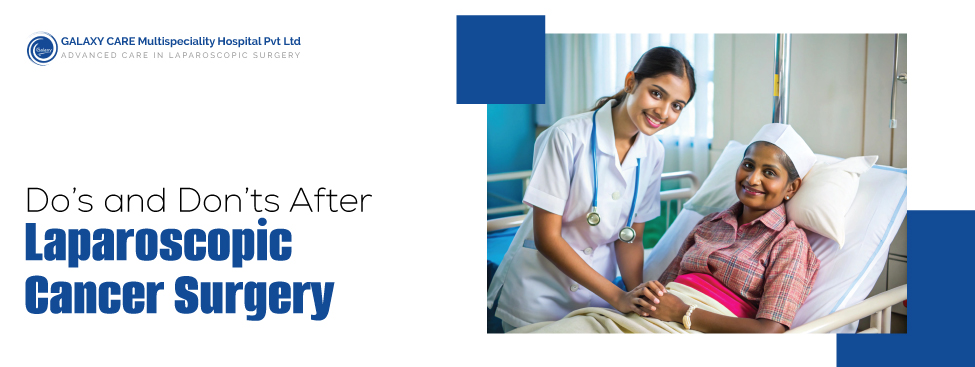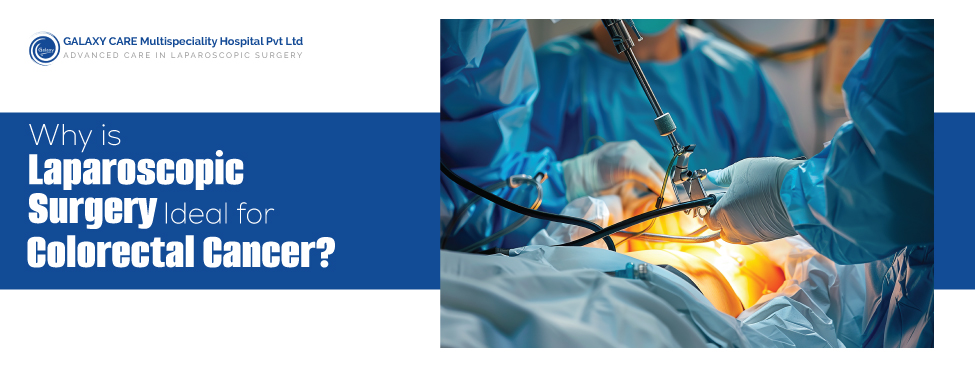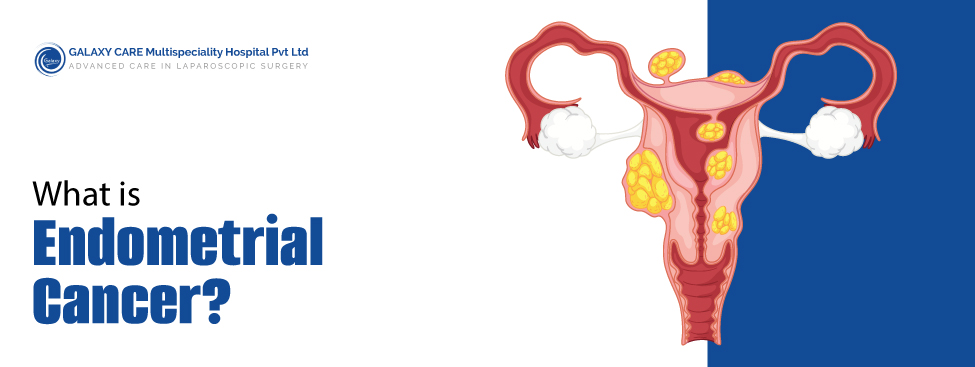
Do’s and Don’ts After Laparoscopic Cancer Surgery
Laparoscopic cancer surgery is a minimally invasive procedure that has revolutionized the way many cancers are treated. It involves small incisions, reducing the risks and recovery time associated with traditional open surgeries. Patients undergoing laparoscopic cancer surgery benefit from less pain, fewer infections, and quicker recovery. However, the recovery phase after the procedure is critical to ensure long-term success. Following specific post-operative guidelines can make a substantial difference in how well the body heals.
If you’ve undergone or are planning to undergo laparoscopic cancer surgery, understanding the do’s and don’ts for post-operative care is essential for a smooth and risk-free recovery. Here’s a detailed guide focusing on the steps patients should take and the precautions to avoid while recovering from laparoscopic cancer surgery. Let’s begin.
Do’s: Things to Focus On Post-Surgery
- Follow the Surgeon’s Instructions Religiously
The first and foremost step in recovery is listening to your laparoscopic cancer surgeon’s advice. Every patient is different, and your surgeon’s guidelines are based on your unique health condition, the surgery performed, and the type of cancer treated. Make sure you attend all follow-up appointments to monitor healing and address any concerns promptly. - Stay Active – But Take It Easy
Light activities like walking are encouraged after laparoscopic cancer surgery. Walking improves blood circulation, prevents blood clots, and helps with digestion. However, avoid strenuous activities for at least 4-6 weeks or as advised by your doctor. - Eat a Balanced Diet
Your body needs proper nutrition to recover from surgery and regain strength. Include foods high in protein, fiber, and essential vitamins. Fresh fruits, vegetables, lean meats, fish, dairy products, and whole grains should be a part of your diet. Remember to stay hydrated as well – drink adequate water each day to support healing and flush out toxins. - Take Your Prescribed Medication on Time
Post-surgery, your laparoscopic cancer surgeon will likely prescribe pain medications, antibiotics, or other medicines to prevent infection and manage discomfort. Make sure to take the prescribed dosages as directed. Do not skip doses, even if you feel better. - Practice Good Wound Care
Laparoscopic cancer surgery involves small incisions, making wound care straightforward compared to traditional open surgeries. Keep the incision area clean and dry, and follow your surgeon’s guidelines for dressing changes. If you notice any signs of infection – redness, swelling, discharge, or excessive pain – report it to your healthcare provider immediately. - Use Supportive Devices If Recommended
Depending on the procedure, your surgeon may recommend abdominal binders, compression garments, or other supportive devices to reduce pain, support the incision site, and promote healing. Use them as directed for best results.
Don’ts: What to Avoid After Laparoscopic Cancer Surgery
- Avoid Strenuous Activities
Refrain from heavy lifting, intense exercise, or any activity that puts pressure on your abdominal region for at least 4 to 6 weeks. Overexertion can lead to internal damage, incision reopening, or a hernia. - Don’t Skip Follow-Up Appointments
It’s easy to think that everything is fine if you don’t feel discomfort. However, cancer treatment and follow-up are long-term processes. Your laparoscopic cancer surgeon in Pune will evaluate your recovery closely to catch any underlying issues. Ignoring follow-ups can delay the identification of complications or recurrence. - Avoid Certain Foods
Post-surgery, some foods can lead to digestive issues and discomfort. Spicy, oily, or overly processed foods are best avoided during the recovery phase. Additionally, avoid carbonated drinks and alcohol, as they can irritate your stomach lining and interfere with your healing process. - Never Ignore Pain or Other Symptoms
While mild discomfort is expected after surgery, unexplained headaches, fever, breathing difficulties, excessive pain, or changes in your bowel/bladder habits could signal complications. Consult your surgeon at the earliest to address these issues. - Don’t Smoke or Use Tobacco Products
Smoking delays wound healing, reduces oxygen supply, and increases the chance of surgical complications or cancer recurrence. If you are a smoker, use this opportunity to quit permanently for better health outcomes. - Avoid Over-the-Counter Medications Without Consultation
Some medications—including aspirin and anti-inflammatory drugs—can increase your chances of bleeding. Always consult your laparoscopic cancer surgeon before taking non-prescribed medications or supplements. - Refrain from Stressing Mentally or Emotionally
Recovery involves not just physical healing but emotional well-being, too. Overthinking or anxiety about cancer recurrence can interfere with your progress. Remember to stay positive and, if necessary, consider joining a support group for cancer patients or speaking with a therapist.
General Timeline of Recovery After Laparoscopic Cancer Surgery
The recovery period varies based on the type of laparoscopic cancer surgery performed, the patient’s overall health, and adherence to post-surgery guidelines. Here’s a general timeline to help you understand what to expect:
- First Few Days After Surgery: You may feel mild to moderate abdominal soreness and experience fatigue as anesthesia wears off. Follow a liquid or soft diet to ease digestion.
- First Week: You should focus on light activities like walking and gradually increasing mobility. Avoid sitting or lying in one position for too long. Your incisions may feel tender, but pain should subside with prescribed medication.
- 2-4 Weeks Post-Surgery: Most patients begin to feel significantly better. If your recovery is progressing well, your laparoscopic cancer surgeon in Pune may allow you to resume light work or activities. Monitor your body closely for any signs of complications.
- 4-6 Weeks and Beyond: By this point, a majority of the healing should be complete, though some individuals might still feel occasional discomfort or fatigue. Gradually incorporate physical activity under your doctor’s guidance. Regular follow-ups are essential for comprehensive care.
Choose the Best Laparoscopic Cancer Surgery Hospital in Pune
Recovering from laparoscopic cancer surgery requires a combination of patience, effort, and discipline. Following the right set of post-operative instructions ensures a faster return to normalcy and prevents unnecessary complications. By implementing the do’s, such as eating a nutritious diet, staying active, and taking prescribed medications, alongside avoiding the don’ts, like skipping follow-up appointments or engaging in strenuous activities, you can give your body the time and support it needs to recover.
For anyone seeking laparoscopic cancer surgery in Pune, Galaxy Care Hospital provides unparalleled expertise and care. With a team of experienced surgeons specializing in minimally invasive cancer treatment and access to advanced technology, our hospital is a trusted name in the field. If you are considering consulting a laparoscopic cancer surgeon in Pune, look no further! Choose Galaxy Care Hospital for compassionate care, state-of-the-art medical facilities, and outstanding cancer treatment that prioritizes your comfort and recovery.
Take a step towards better health and a brighter future with Galaxy Care Hospital today!
SUMMARY:
Recovering from laparoscopic cancer surgery? Knowing what to do (and what to avoid) is crucial for a smooth and successful recovery. Read this latest blog: “Do’s and Don’ts After Laparoscopic Cancer Surgery” for expert tips and detailed recovery guidance. A blog by Galaxy Care Hospital, the Best Laparoscopic Cancer Surgery Hospital in Pune. Read now!


